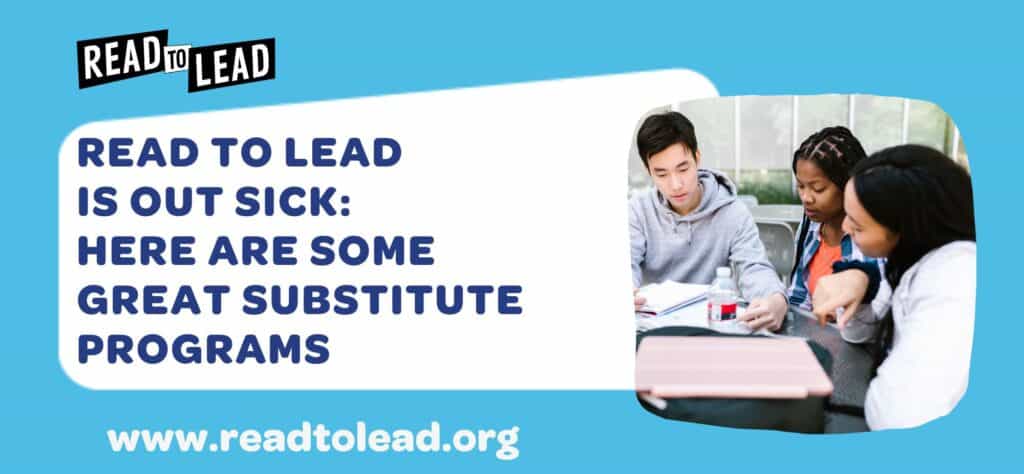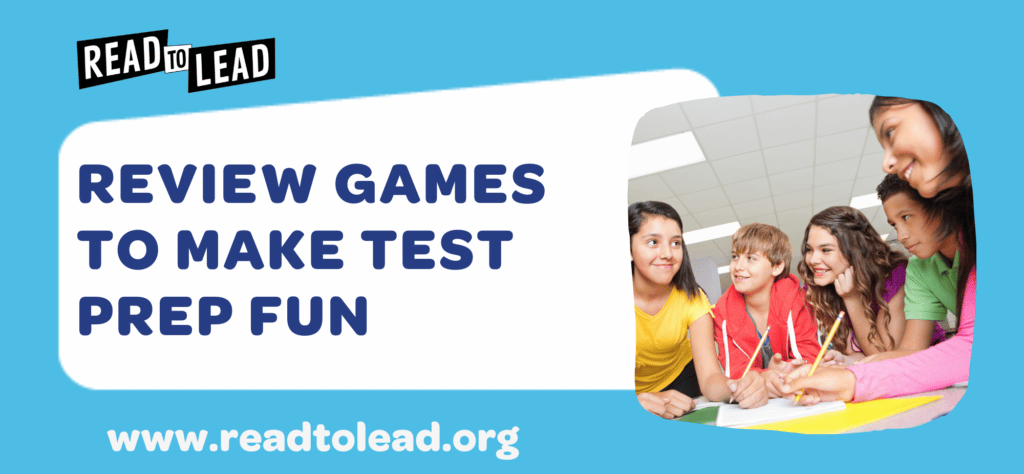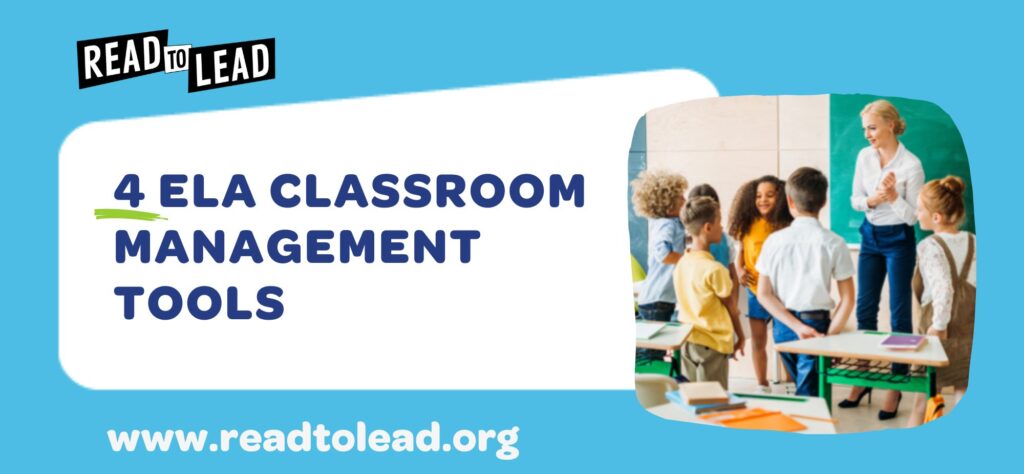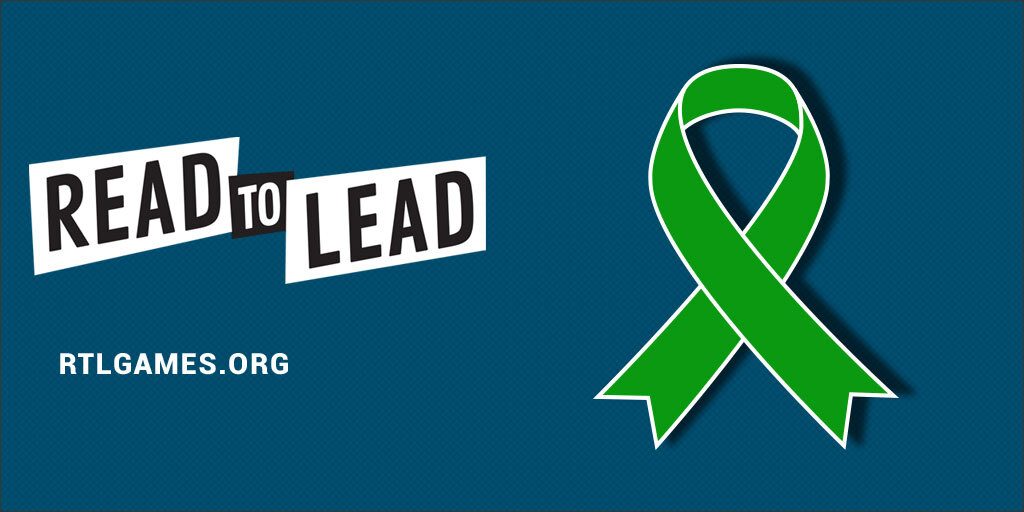
When it comes to students’ learning success and overall well-being, their mental health is just as important as their physical health.
Mental health problems can affect a student’s ability to focus and their energy levels, and in turn, negatively impact their performance in school. It is something that we as educators always need to be aware of, but now more than ever before, our students’ mental health deserves extra attention.
The Global Pandemic & Impact on Mental Health
The current COVID-19 global pandemic has necessitated social distancing and school closures to reduce the spread of the novel coronavirus. A consequence of these measures is the social isolation some of our students may be facing during this stressful and uncertain time. Humans are highly social beings, and an extended lack of social interaction with others could result in poor mental and physical health.
May – A Spotlight on Mental Health
May is Mental Health Month, and a great opportunity to shed light on the importance of caring for mental health. The National Institute of Mental Health reports that almost 1 in 5 adults in the US lives with a mental health condition, and a similar incidence of mental health conditions has been observed in middle school students.
Educators and parents can demonstrate and promote healthy practices in mental and emotional wellbeing. Being open about your own challenges with your students and sharing positive strategies can encourage students to open up about their own struggles.
With the right structures in place, it is possible to foster a sense of community among our students, and to drive important conversations about our students’ emotional and mental well-being.
Read to Lead on Mental Health
Getting the conversation started on mental health can be tricky. To give educators and students alike a starting point to engage in meaningful discussions around this topic, we’re highlighting some of the Read to Lead games that can kickstart conversations on this topic.
Game-Based Learning
In the Vital Signs series, students take on the role of Medical Director of a Family Clinic. They encounter different real-world scenarios dealing with health-related topics, including mental health issues and wellness, and must decide on the best course of action for the patients and staff.
The easy-to-navigate platform is designed for independent learning, which also makes it a great resource for students learning from home.
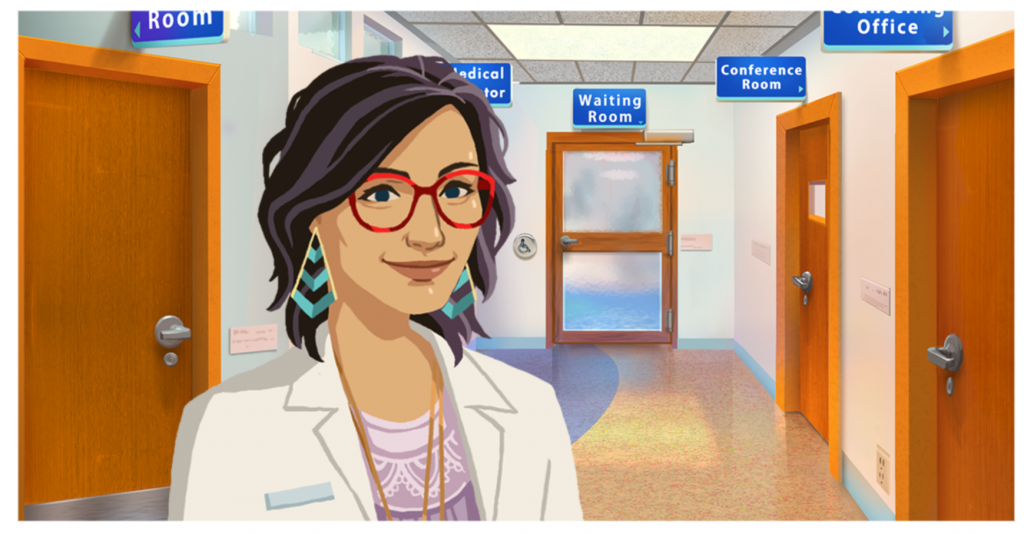
In the game High Anxiety, a patient believes she has an obscure disorder she read about on the internet, but the clinical staff on her case thinks that she suffers from anxiety and recommends counseling. Students learn more about the symptoms of anxiety and its causes, as well as treatment options.
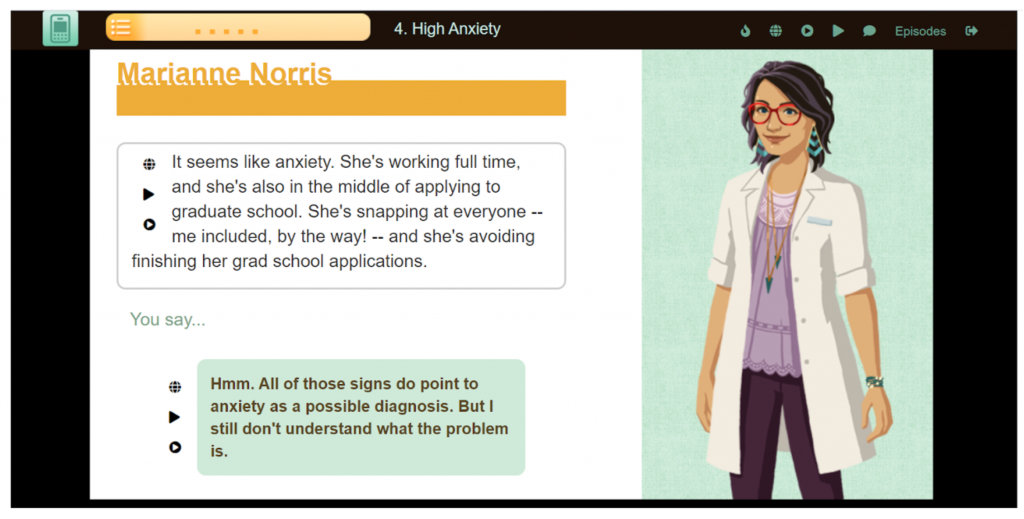
The game is also accompanied by post-game discussion and debate questions. By encouraging students to think about and reflect on the topic of anxiety, educators open the doors of communication with students who may be struggling with similar feelings. These tools can also be used to further the conversation about the challenges around discussing mental health.
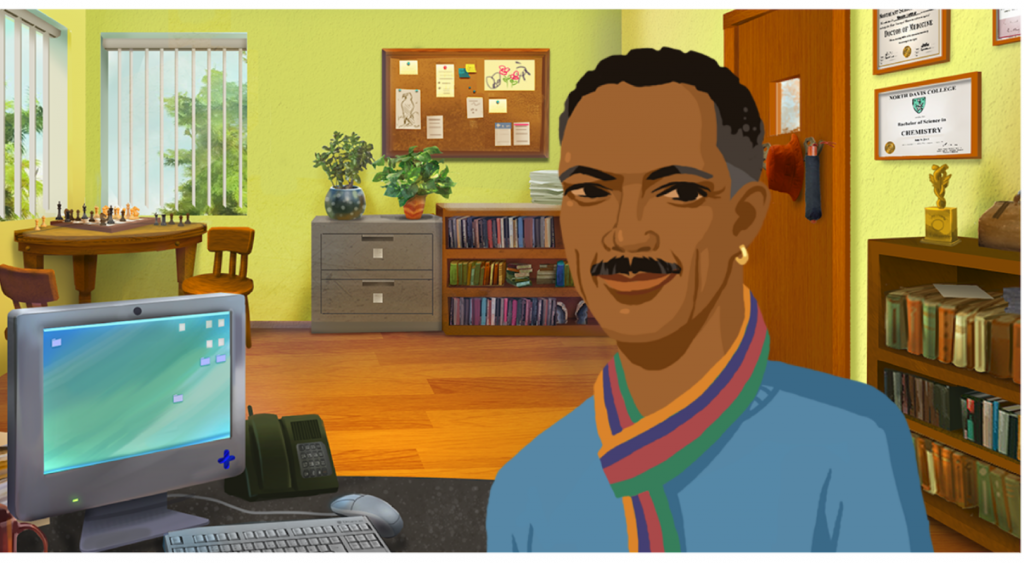
Crash Course is another game that is a valuable resource to educators in talking about mental health. A patient comes in for treatment for injuries from a car accident that he caused, and he appears to be suffering from an enormous amount of guilt. However, he doesn’t want further treatment. Students learn more about PTSD – its symptoms and treatment options – and must assess the situation to decide whether to refer the patient for therapy.
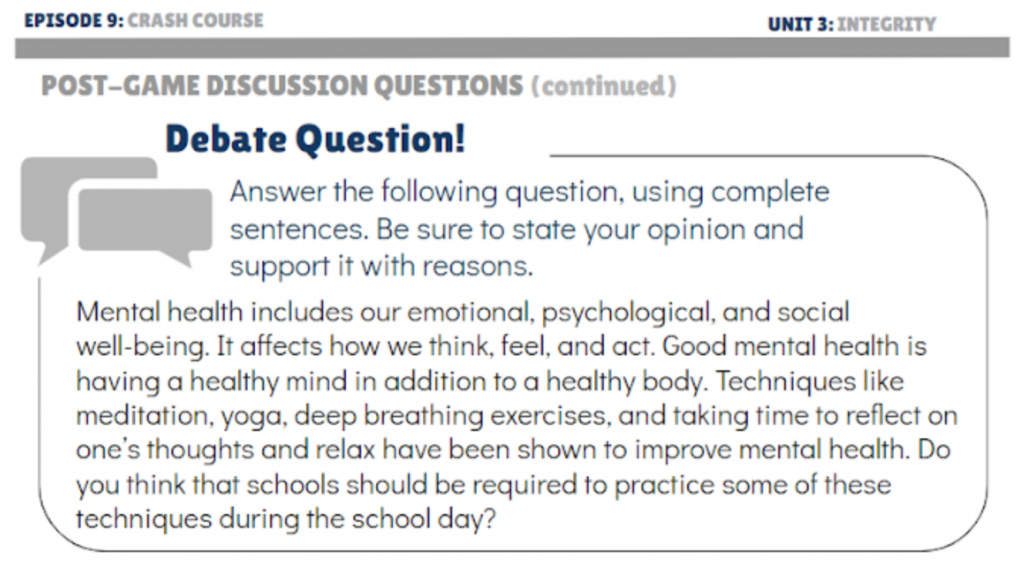
In the post-game discussion questions and debate, students are invited to explore mental health and learn some practices around effectively managing their own emotional and mental wellbeing. Educators can use this as a springboard to lead guided discussions to support their students.
Play High Anxiety and Crash Course by signing up for a free Read to Lead account.
Extension Activities
Both games, like all other games on the Read to Lead platform, can be played independently and work as stand-alone lessons for students. Our accompanying extension activities can be used to foster more self-awareness and self-management among students.
By sparking meaningful discussions, we hope to normalize the topic of mental health and emphasize the importance of implementing proactive strategies to maintain mental wellbeing and asking for help when needed.
This activity will help students identify their feelings, explore strategies to manage anxiety, and make space to uplift each other.
This activity helps students think more deeply about their own mental health and promotes the importance of taking care of their mental and emotional wellbeing.
Read to Lead’s Top Picks for Information for Educators on Mental Health
We curated some of our top picks for educators on how best to approach mental health with your students.
• Mental Health Month, Mental Health America has compiled an extensive repository of information and printables on specific topics relating to mental health. These resources are research-backed and can be shared with your students remotely.
• Child Mind Institute offers excellent classroom strategies and information on learning issues and the connection to mental health.
• Edutopia is also a useful platform with resources for educators to address any behavioral, emotional, or social challenges their students may be facing.
There is no doubt that this is a difficult period for students and educators alike. Our students may be more susceptible to mental health issues, and as educators, we need to provide the necessary support to help them navigate these complex times.
By engaging students in meaningful discussions and providing them with tools to manage their mental and emotional wellbeing at this time, we are not only addressing their immediate needs, but also equipping them with skills for the future as well.
Sign up for Read to Lead today to explore the variety of games available for free, and jumpstart the conversation on mental health!
About Read to Lead
Read to Lead uses the power of game-based learning to empower middle school students to build literacy, life, and career skills. Teachers can sign up for a free account to get started!
